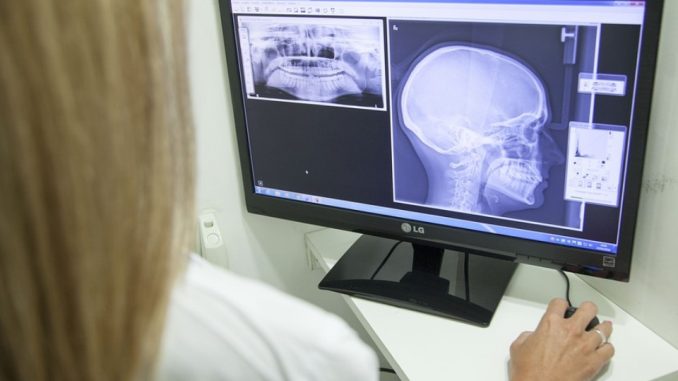
Phil and Stephen review a series of articles from MIT Technology Review showcasing progress in artificial-intelligence driven medicine
ICX wants to capture more data about your body than has ever before been possible. It starts with your DNA sequence and includes data from Fitbit-style wearables that measure your steps, heart rate, and sleep patterns. Add frequent blood tests to measure various proteins and enzymes that can, say, reflect the health of your heart or signal very early signs of cancer. Include monitoring of the ever-changing levels of metabolites produced by the body as it processes food; traditional blood tests on levels of cholesterol and glucose; heart data from an EKG; and information from your medical history. The goal: continuous monitoring of your health and suggestions of adjustments you might make in your diet and behavior before you slip from being healthy into the early stages of an illness.
ICX is part of a new wave of companies that figure they can find something meaningful in the data and enable medicine to stop merely reacting to an illness you have; these companies want to keep you healthy at a fraction of the cost. Unlocking this puzzle, with its millions of moving pieces, is where AI and other advanced computing techniques will have to come in. “AI is how we can take all of this information and tell you things that you don’t know about your health,” says Wang.
The Artificially Intelligent Doctor Will Hear You Now
U.K.-based startup Babylon will launch an app later this year that will listen to your symptoms and provide medical advice. Will it help or hinder the health-care system?
Parsa is the founder and CEO of Babylon, a U.K.-based subscription health service that plans to launch an AI-based app designed to improve doctors’ hit rate. Users will report the symptoms of their illness to the app, which will check them against a database of diseases using speech recognition.
The system is able to analyze “hundreds of millions of combinations of symptoms” in real time, Parsa says, taking into account individualized information on the patient’s genetics, environment, behavior, and biology.
Parsa says the app will also be able to predict illnesses before they occur. “For example, if your heart rate is faster than normal and your physical activity hasn’t increased, it’s a sign you’re either stressed or dehydrated or you’re fighting something,” he says. “The platform can bring this to your attention and suggest the best course of action to fight the illness before it surfaces.” The app will also remind patients to take their medication, and follow up to find out how they’re feeling.
Treating Addiction with an App
Using smartphone data and artificial intelligence to track and interpret behavior, a Chicago startup is attempting something extraordinary: predicting and preventing relapse into drug use.
Using data collected from smartphones, the company aims not only to help people handle cravings and the stresses that trigger drug use but to actually predict when someone is going to relapse and intervene. Triggr collects clues from things like screen engagement, texting patterns, phone logs, sleep history, and location. Those are combined with information gathered from participants’ communications with the startup’s staff on its platform—such as drug preference, drug history, and the presence of dangerous words like “craving” or “stress”—and fed into a series of algorithms. The system has access to general information about other texting and e-mail activity but not to the content of private texts or calls. Using machine learning, it searches for patterns that point to an increased likelihood of relapse. When the likelihood rises to a dangerous level, a member of the recovery team steps in or alerts a customer’s outside care team.
Stopping Breast Cancer with Help from AI
In an effort to find targeted treatments for particularly invasive types of breast cancer that don’t respond well to existing drugs, the Department of Defense announced this week that it is enlisting the biopharma company Berg Health to use AI for drug discovery. The partnership supports the White House’s Cancer Moonshot initiative to screen up to 250,000 patient samples in search of new biological indicators, or biomarkers, of the earliest signs of cancer. While the death rate from breast cancer has dropped steadily over the past two decades, it remains the second-biggest killer among cancers in U.S. women, according to the National Cancer Institute.
Berg will start by sequencing samples from healthy donors and those with various breast cancer subtypes, which will generate genomic and other information on the mutations, proteins and cellular processes present in cancerous and healthy cells. That data will then be combined with patients’ known medical histories and fed into Berg’s AI-based platform, which will produce different models of healthy and diseased tissue using trillions of data points. The platform’s algorithms will then help spot patterns—hot spots or hubs—in molecular signatures across these models. Such patterns could represent biomarkers or drug targets.
Berg starts with data and allows the data to generate hypotheses—the reverse of the process common in drug discovery, says Niven Narain, Berg’s cofounder, president, and CEO.
The Recipe for the Perfect Robot Surgeon
One of Verb’s priorities is to use artificial intelligence to help surgeons interpret what they see inside a patient. Existing robots just leave surgeons to look at a video feed. Garcia said that artificial neural networks like those Google uses for image search could annotate a feed with anatomical data and guidance such as information about the boundaries of a tumor. That could give any surgeon a level of expertise usually obtainable only after experience with thousands of cases.
Verb has said its robot will be significantly cheaper than a da Vinci. Garcia said that he also wants to make it much smaller, and that connecting surgical robots over the Internet would make it possible to quickly improve their skills and the guidance they can offer surgeons.
WT 380-691